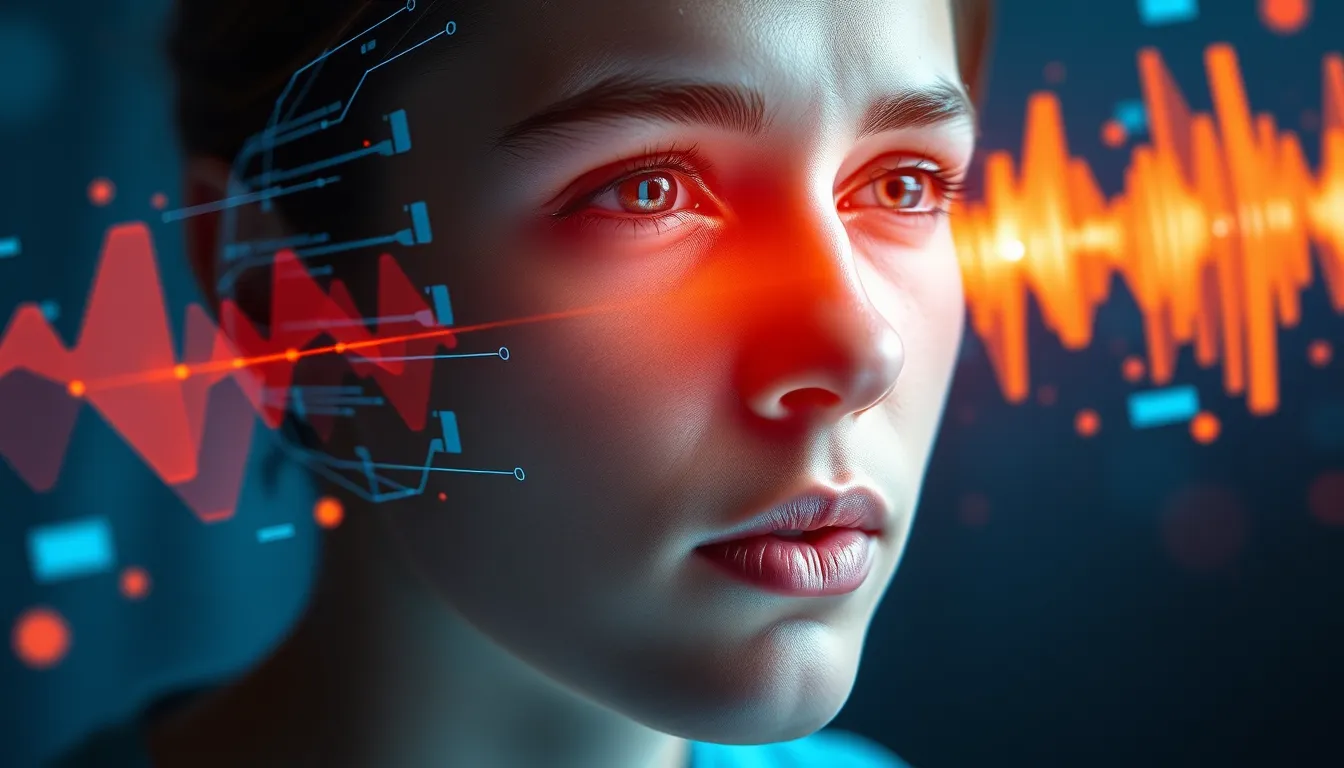Now Reading: Powerful AI in Healthcare Diagnostics: Enhancing Medical Accuracy
-
01
Powerful AI in Healthcare Diagnostics: Enhancing Medical Accuracy
Powerful AI in Healthcare Diagnostics: Enhancing Medical Accuracy

Powerful AI in Healthcare Diagnostics: Enhancing Medical Accuracy
The rapid integration of artificial intelligence in the healthcare sector is transforming diagnostics like never before. With the advent of advanced medical imaging and AI disease prediction tools, the focus on AI in healthcare diagnostics has reshaped the ways in which patient care and diagnostic accuracy are approached. This article explores the benefits, challenges, and future potential of AI in healthcare diagnostics.
The Rise of AI in Healthcare Diagnostics
As technology evolves, AI in healthcare diagnostics has taken center stage, offering enhanced accuracy and efficiency in detecting diseases. Healthcare providers across the globe are increasingly relying on cutting-edge AI tools to interpret complex medical images, predict disease progression, and enable earlier intervention. This rapid adoption is supported by robust algorithms that analyze data better than ever before.
Key Benefits of AI-Driven Diagnostics
- Enhanced Accuracy: AI algorithms are designed to reduce human error, ensuring that diagnoses are precise and reliable.
- Speed and Efficiency: Automated image analysis accelerates the diagnostic process, allowing physicians to make quicker decisions.
- Cost-Effective Solutions: With AI, the overall cost of prolonged care reduces, benefiting both healthcare systems and patients.
- Predictive Capabilities: Advanced machine learning models help in predicting disease outcomes, optimizing treatment plans based on predictive insights.
These benefits underline the transformative potential of leveraging AI in healthcare diagnostics. By blending technology with medical expertise, AI is set to revolutionize the way diagnostic decisions are made.
Deep Dive: How AI Improves Diagnostic Accuracy
One of the greatest challenges in modern medicine is achieving high diagnostic accuracy, especially in complex cases that require advanced interpretation of data. AI in healthcare diagnostics acts as a supplementary tool that provides a second opinion to clinicians. Through sophisticated algorithms, AI tools are capable of scanning thousands of medical images, identifying patterns and anomalies that might be missed during routine checks.
For instance, studies have shown that machine learning models can predict disease onset by analyzing subtle changes in imaging, which can be pivotal in early intervention. Furthermore, these tools continue to evolve as they learn from each new data set, thereby increasing their accuracy over time.
Incorporating AI in Routine Medical Imaging
Integrating AI requires collaboration between physicians, data scientists, and IT specialists. Medical imaging platforms are adapting to incorporate AI, resulting in seamless workflows that enhance the overall diagnostic process. Hospitals are adopting systems where the following features are standard:
- Automated Image Analysis that flags potential issues in real time.
- Cloud-Based Storage Solutions that support quick retrieval of patient images and records.
- Continuous Learning Processes that allow the AI to improve from past data.
This technological evolution means that AI in healthcare diagnostics doesn’t just stop at improving current healthcare practices; it is paving the way for future innovations that may redefine the relationship between technology and medicine.
Challenges in Implementing AI in Healthcare Diagnostics
Despite the significant advantages, the integration of AI in healthcare diagnostics comes with its set of challenges:
- Data Privacy and Security: Managing sensitive patient data necessitates robust security protocols. Healthcare organizations must ensure all AI tools comply with regulatory standards.
- Integration with Existing Systems: Many institutions struggle to integrate new AI technologies with their legacy systems, potentially causing disruptions in workflow.
- Need for Skilled Professionals: The implementation phase requires personnel who are not only tech-savvy but also understand the nuances of medical diagnostics.
Overcoming these challenges is crucial for the smooth transition towards a future where AI in healthcare diagnostics is fully integrated into everyday clinical practice.
Future Implications of AI in Healthcare
The trajectory of AI in healthcare diagnostics continues to point towards an even more integrated and patient-focused approach. With continuous advancements in machine learning and increased computing power, the future looks promising. Researchers at institutions such as the National Institutes of Health and the World Health Organization are actively exploring the next frontier for AI applications in diagnostics. This collaborative effort among global healthcare leaders aims to harness the full potential of AI, ensuring that advancements in technology translate into real-world improvements in patient outcomes.
Conclusion
In summary, AI in healthcare diagnostics is a game-changing technology that stands to redefine patient care through improved accuracy, efficiency, and predictive analytics. As hospitals adopt these tools, we can expect significant progress in addressing complex health challenges while reducing costs. Although there are notable challenges, continuous innovation and collaboration will ensure that AI remains a vital component in the future of healthcare. The evolution of AI in healthcare diagnostics not only signifies a breakthrough in technology but also heralds a new era in medical care where precision and patient-centered treatment go hand in hand.

























